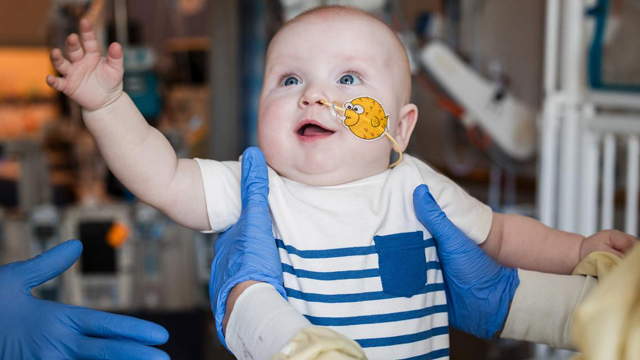News Flash

WASHINGTON, May 16, 2025 (BSS/AFP) - A US infant with a rare condition has become history's first patient to be treated with a personalized gene-editing technique that raises hopes for other people with obscure illnesses, doctors said Thursday.
The wee pioneer is KJ Muldoon, now a 9-and-a-half-month-old boy with chubby cheeks and big blue eyes.
Shortly after birth, he was diagnosed with a rare and serious condition called CPS1 deficiency.
It is caused by a mutation in a gene that produces an enzyme key to liver function, and prevents people with it from eliminating certain kinds of toxic waste produced by their metabolism.
"You Google 'CPS1 deficiency' and it's either fatality rate or liver transplant," the baby's mother, Nicole Muldoon, says in a video released by Children's Hospital of Philadelphia, where the baby was treated.
With the prognosis grim, doctors suggested something that had never been done before: a personalized treatment to fix the baby's genome using what amounts to a pair of molecular scissors -- the technique called Crispr-Cas9, which earned its creators the Nobel prize for chemistry in 2020.
The boy's father said he and his wife faced an impossible decision.
"Our child is sick. We either have to get a liver transplant or give him this medicine that's never been given to anybody before, right?" said Kyle Muldoon.
In the end, they agreed to have the child treated with an infusion created just for him to fix his genetic mutation -- incorrect DNA letters in the several billion that make up the human genome.
"The drug is really designed only for KJ, so the genetic variants that he has are specific to him. It's personalized medicine," said Rebecca Ahrens-Nicklas, a member of the medical team who specializes in pediatric genetics.
Once the tailor-made infusion reaches the liver, the molecular scissors contained in it penetrates cells and goes to work editing the boy's flawed gene.
The results were promising for other people with genetic conditions, said the medical team, which published their study Thursday in the New England Journal of Medicine.
KJ can now follow a diet richer in proteins -- his condition prohibited such before -- and does not need as much medicine as he used to.
But he will need to follow-up long term to monitor the safety and efficacy of the treatment, the team said.
Ahrens-Nicklas said she hoped this achievement will allow the boy to get by with little or no medication some day.
"We hope he is the first of many to benefit from a methodology that can be scaled to fit an individual patient's needs," the doctor said.